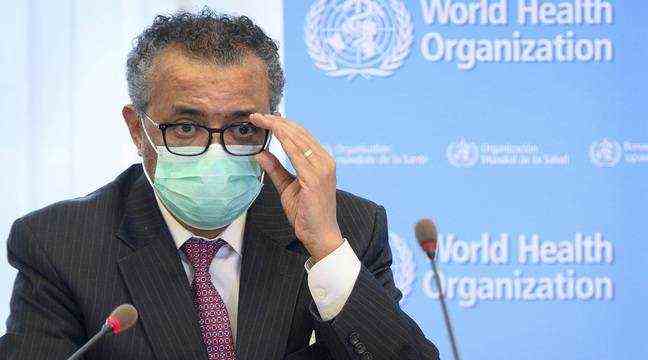A dialogue under pressure. Beijing on Friday rejected criticism from the World Health Organization (WHO) over China’s supposed lack of cooperation in the investigation into the origin of the Covid-19 pandemic. The Middle Kingdom, where the first cases were detected in Wuhan, in the center of the country, in 2019, must “cooperate better” to understand what “really happened”, said Thursday the director general of the ‘WHO, Tedros Adhanom Ghebreyesus.
The international organization based in Geneva (Switzerland) is facing increasing pressure for a new in-depth investigation into the origins of Covid-19. In January, the sending to China by the WHO of an expert mission did not shed any light on the Covid-19, which has already killed more than 4 million people around the world.
Experts have obtained “a large amount of data”
In front of the press, the director general of the WHO Tedros Adhanom Ghebreyesus notably mentioned Thursday the lack of sharing by Beijing of “raw data” on the virus, a “problem” according to him. Asked to respond, a spokesman for Chinese diplomacy, Zhao Lijian, said on Friday that “certain information concerning private life does not [pouvaient] be copied and taken out of the country ”. WHO experts were, however, able “to obtain a large amount of data,” and China “showed them line by line” those that required “special attention,” he said.
The spokesperson also rejected the WHO director’s claims that “there was a premature attempt” to dismiss the theory of the laboratory accident. Long brushed aside by most experts, this theory brought to the United States by the former Trump administration has come back in force in recent months in the American debate. “This issue should not be politicized,” regretted the Chinese spokesman.
As part of the continuation of its investigation, the WHO on Friday asked for the “laboratory control” where the first cases of Covid-19 were identified in China. To advance the study, the organization believes that it is necessary to carry out studies or actions in five main areas, including “relevant research establishments active in the region where the first human cases were identified in December 2019”, Tedros Adhanom Ghebreyesus said during a meeting with representatives of member states.

